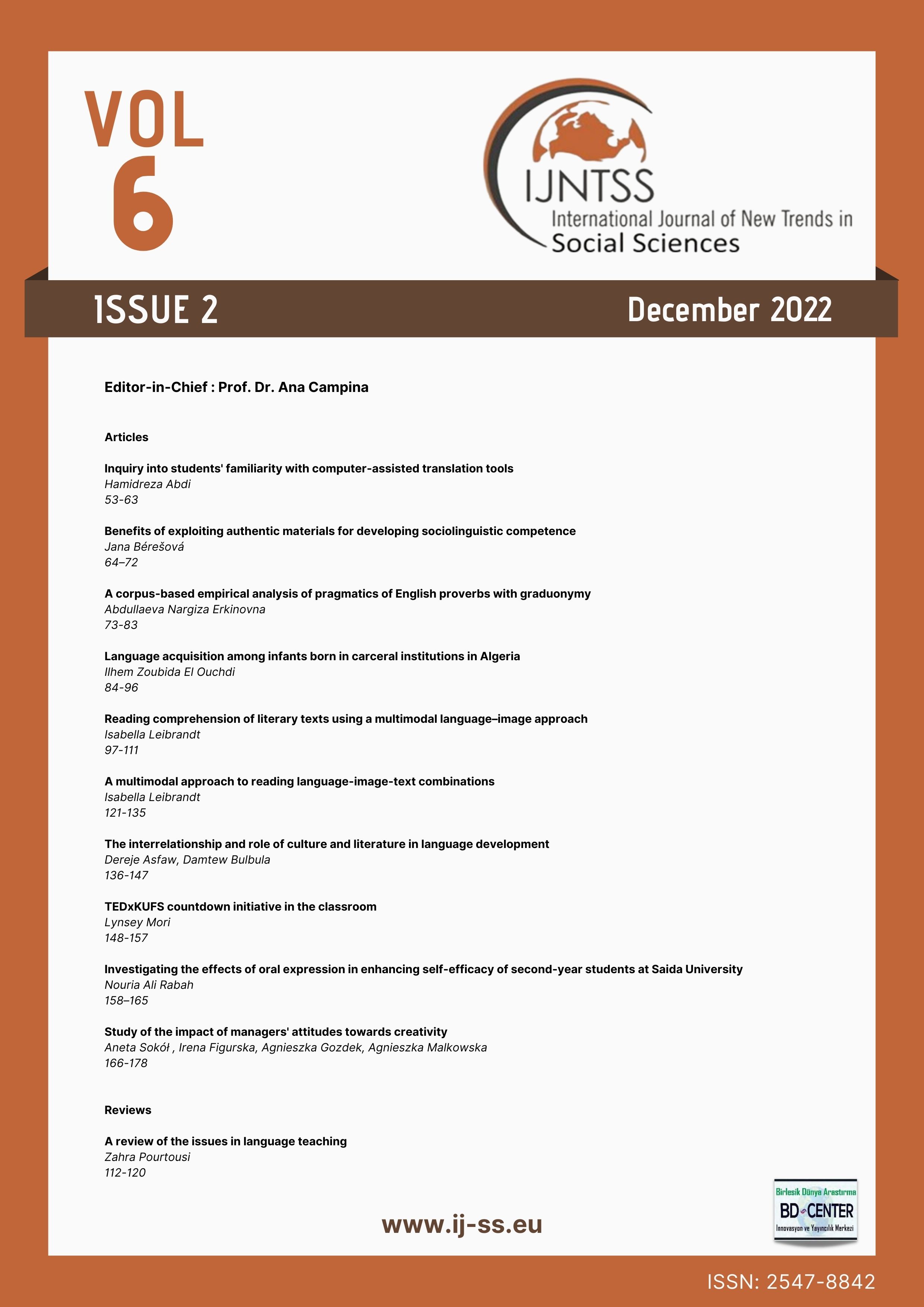Benefits of exploiting authentic materials for developing sociolinguistic competence
Main Article Content
Abstract
Being a competent user of a target language includes mastery of sociolinguistic appropriateness and cultural repertoire alongside linguistic and pragmatic competencies. The article is based on the results of an ongoing research project that seeks to explore the implications of communicative teaching at secondary schools in the local context. The article reports university students’ findings related to the development of sociolinguistic competence, gained utilising excerpting examples of natural English. An analysis of the achieved results stimulated an insight into the real language and culture, which was later reflected in the students’ performances. Contemporary literary prose offers enough authentic material to discover its benefits for developing sociolinguistic awareness and cultural repertoire. The article presents the findings that can encourage English teachers to use authentic materials in their English classes in case they have not discovered their relevance to language and culture acquisition.
Keywords: Communication, competence, cultural repertoire, English, sociolinguistic;
Downloads
Article Details

This work is licensed under a Creative Commons Attribution 4.0 International License.
Authors who publish with this journal agree to the following terms:
- Authors retain copyright and grant the journal right of first publication with the work simultaneously licensed under a Creative Commons Attribution License that allows others to share the work with an acknowledgement of the work's authorship and initial publication in this journal.
- Authors are able to enter into separate, additional contractual arrangements for the non-exclusive distribution of the journal's published version of the work (e.g., post it to an institutional repository or publish it in a book), with an acknowledgement of its initial publication in this journal.
- Authors are permitted and encouraged to post their work online (e.g., in institutional repositories or on their website) prior to and during the submission process, as it can lead to productive exchanges, as well as earlier and greater citation of published work (See The Effect of Open Access).
